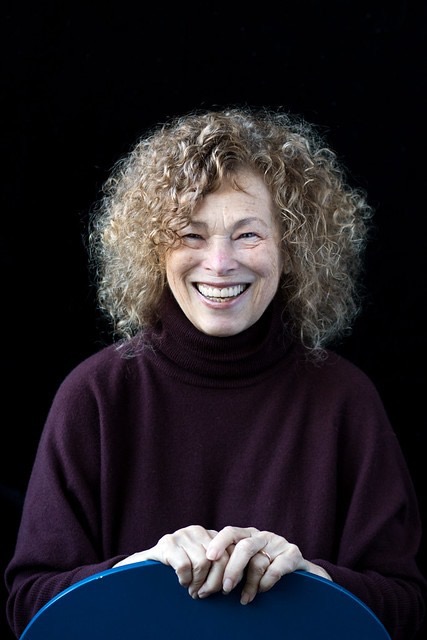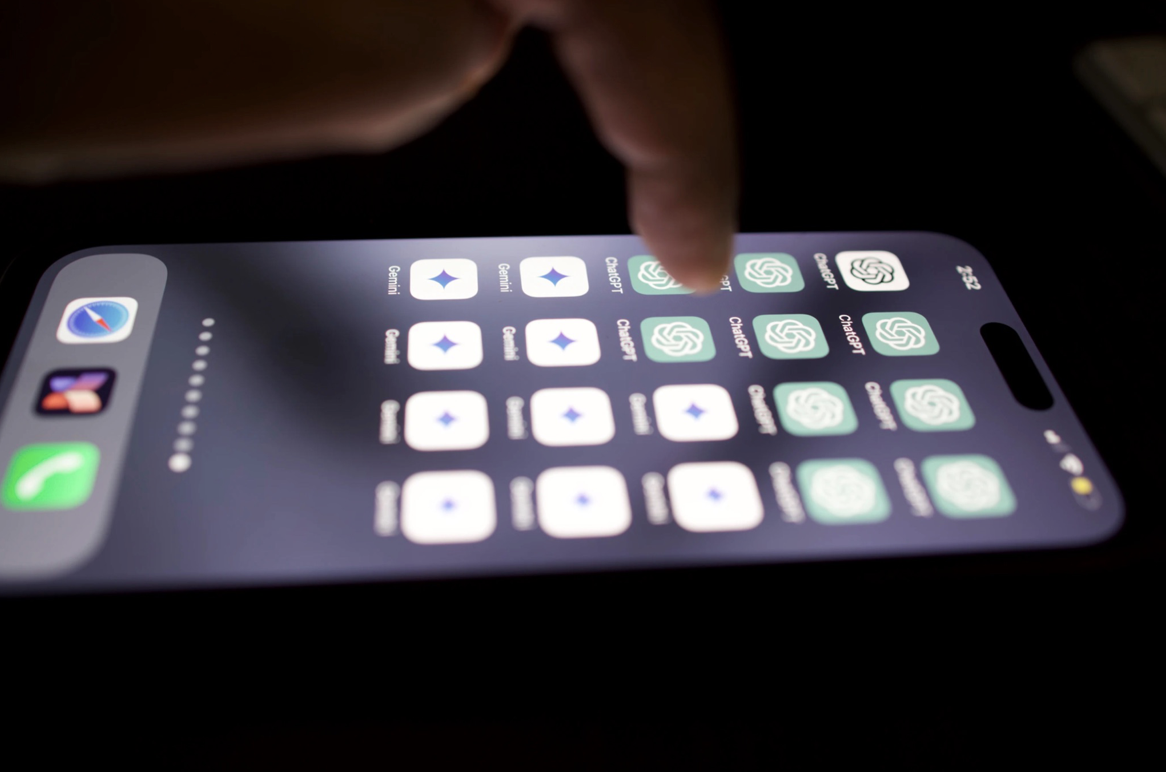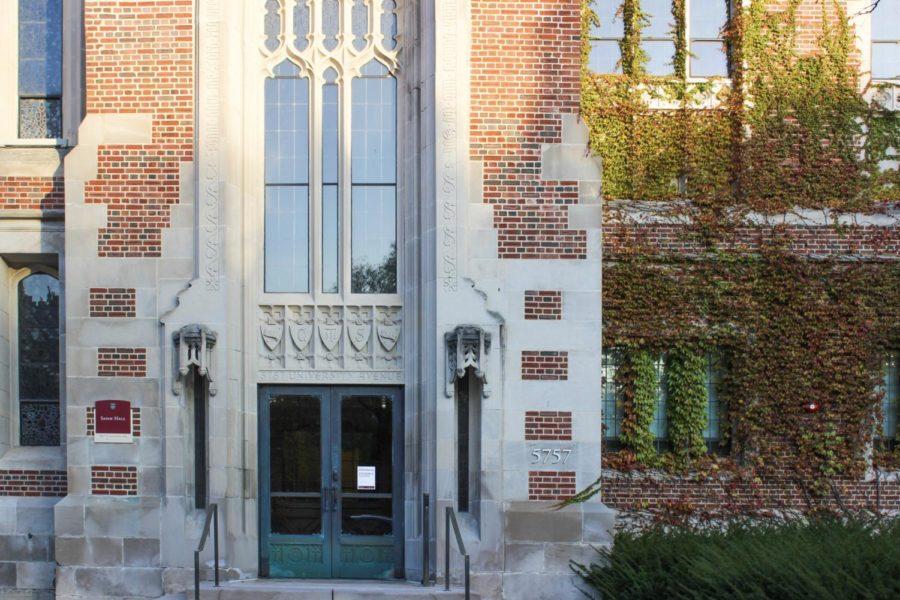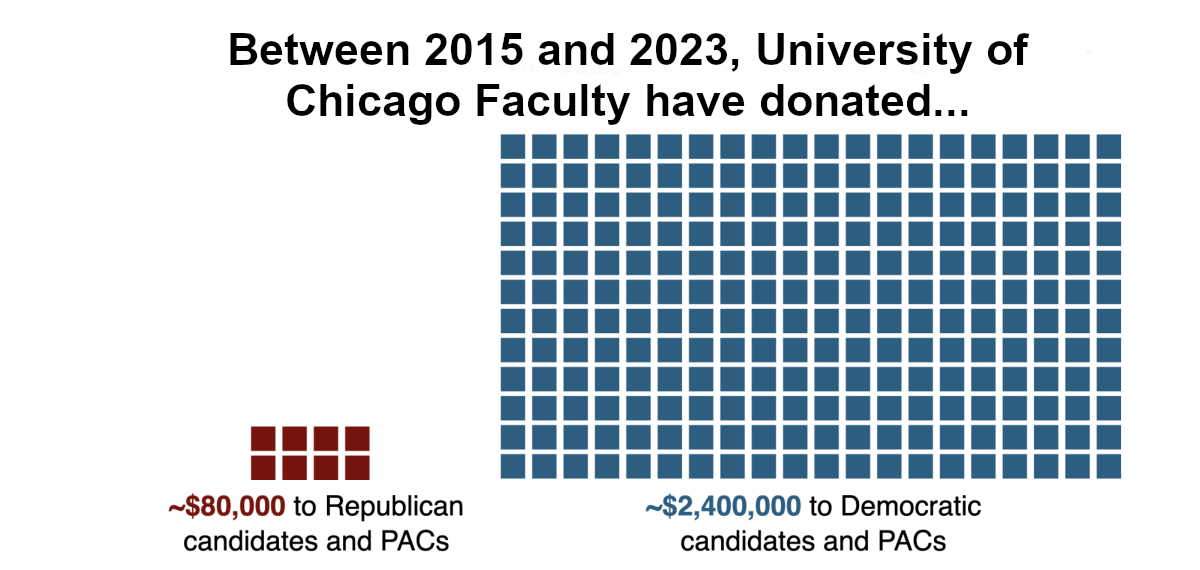Not everyone who comes to the University of Chicago for a degree leaves with one. Marilyn Webb, founder of a women’s literary collective, onetime mayoral candidate, former editor-in-chief of Psychology Today, and author of the 1997 book The Good Death, is one of those people. Cheryl Dembe, head of the chemistry department and 34-year faculty member at Diablo Valley College in California, who authored the book The Choice of Happiness: Glimpses from an Extraordinary Ordinary Scientific Mystical Life, is another.
Webb left the University of Chicago after sexual harassment by two professors whom she had asked to serve on her dissertation committee. But 52 years later, she’s back to receive her doctorate with the class of 2019.
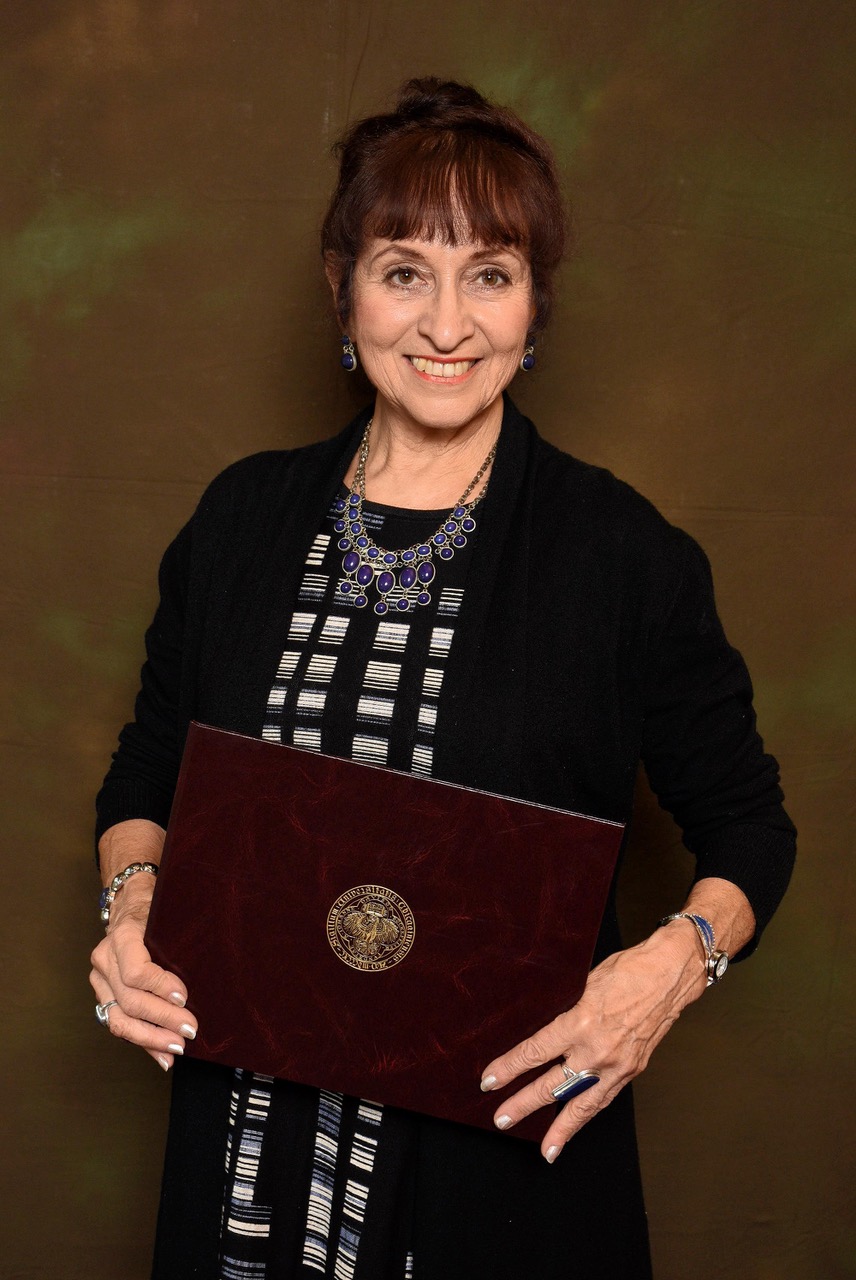
Dembe is returning to campus after 48 years to celebrate completing her degree, for which she had conducted research with Nobel Prize potential. Her adviser died just after they had completed her research and she was beginning her thesis, but the professor whose research was most similar to Dembe’s said that he did not want a woman in his research group.
Both women had asked the University about the possibility of receiving their doctorates since they left, but this was the first time the institution listened. Webb and Dembe will receive their degrees at Convocation in educational psychology and chemistry, respectively—52 and 48 years after leaving the University.
Webb and Dembe both attribute the University’s decision—at least in part—to the #MeToo movement, which has brought attention to the stories of women who have been victims of gender-based assault or discrimination. Webb referenced it in her initial correspondence with the University.
“In light of [Harvey] Weinstein, maybe it’s time for Chicago to make changes,” she wrote.
Shortly afterward, Webb heard from Bridget Collier, the associate provost for equal opportunity, as Dembe would as well after she contacted the University, and a series of “fairly amazing unfoldments,” as Dembe put it, began to take place—events remarkable for their impacts on Webb and Dembe and the change they represent in the University’s culture.
________
When she arrived at the University in 1969, Cheryl Dembe was one of 46 graduate students beginning the chemistry Ph.D. program, of whom 23 completed the first year, including one of six women.
The intense program was a good fit for Dembe, who described herself at the time as “an ambitious young woman [and] a serious student.” One of the reasons she came to Chicago was her wish “not to be a housewife in Cleveland.”
“I was dating a really nice guy—I really loved this guy and I knew I couldn’t break up with him and I knew I was in the wrong place,” she said. “Chicago was just far enough.”
Dembe embarked on her Ph.D. process in a pre-computer environment, and recalled to me how she did her calculations with a slide rule and typed her notes on a typewriter, pausing to write in equations by hand. In a time before copy machines, the ditto machine was the way to make duplicate documents, and instead of digital files, stack upon stack of punch cards containing data sat all over the department. It made research a labor-intensive process in a completely different way than it is today, and facilitated much smaller volumes of data for collection than a typical Ph.D. candidate would accumulate today.
When she requested another chance at a Ph.D. in 2017, Dembe provided her entire data record to the department via scan as material on which to base their recommendation. When she sent the notebooks, Dembe was unsure if they would satisfy department standards.
“As a grad student you really have no idea how to evaluate the caliber of the work you’re doing,” she said.
Chemistry professor Philippe Guyot-Sionnest was one of the people tasked with this recommendation, along with Greg Engel, following Dembe’s most recent outreach to the University in 2018. He said that translating these notebooks of a doctoral candidate in 1971 into a recommendation for 2019 was a challenge, and he was initially skeptical that Dembe could get a Ph.D. 50 years after the fact. It wasn’t the lack of automation, he said—computers don’t generate knowledge—but Dembe had “no thesis, not even a manuscript of a thesis,” and besides, obtaining a doctorate in three years is virtually unheard of.
“I expected there’s no way. I don’t believe anybody would give a Ph.D. to a person in two and a half years,” he said.
But after finding that Lothar Meyer, Dembe’s adviser before his death, regularly graduated students in three years and looking at the work he and Dembe had pursued, Guyot-Sionnest’s skepticism began to fade.
“It was an experiment that could be very, very cool. She was working on cooling liquid helium-3 to the lowest possible temperatures not knowing what they could expect to find but looking for the lowest temperature and some properties of magnetization. So they developed the technology and you could see in the notebook, the progression of the experiment, and it was clear they were making progress,” he said.
A year after Dembe dropped out of UChicago, a Cornell team working on the same problem got what Guyot-Sionnest described as an “exciting result,” for which they later received the Nobel. Dembe wasn’t far off from the same result when she stopped her research.
“Had she been able to work a few more months, it would have not only been good for her, but good for Chicago,” Guyot-Sionnest said.
However, the level of departmental support for someone in her position was nowhere near what Dembe needed, especially in the week of her adviser’s death.
“In the same week as my adviser died, I was assaulted in my apartment in the middle of the night,” Dembe said. “The department sent me flowers for being assaulted, but they never gave me any counseling.”
Although Guyot-Sionnest was conscious of the circumstances under which Dembe left the University, he was wary of contemporary academia’s consciousness of gender.
“We are in a field that deals more with numbers than social issues. Smart people of any kind can get into this field, they just have to prove they are smart enough to make it. When I came here, I didn’t sense there was as much emphasis on it then as now, but I’m not suref the trend is such a positive one,” he said. “This #MeToo thing was not what motivated us. We were not trying to right the wrong from society, but evaluate whether her research at the time led to a Ph.D. she deserved.”
Dembe, for her part, wonders whether the attack she experienced contributed to her isolation after Meyer’s death.
“It might have created an atmosphere where men were terrified of interacting with me,” she said. “There was no way to talk about assault.”
Actually, there was no way to talk about any gender-based problem, even the less graphic ones. Dembe was on campus during the beginnings of second-wave feminism, but these were events occurring outside Dembe’s life, albeit very nearby.
“I wasn’t political—I was just working extraordinarily hard,” she said.
Among the women in her program, she said, there was no consideration that they might have similar experiences working to prove themselves, or that others might have had similar experiences to her assault. Dembe told me about taking a class for which linear algebra was an unlisted prerequisite, which she hadn’t known she needed. So, she was taking the class and teaching herself the math simultaneously, thinking she was the only person doing so. But when she mentioned her predicament to another woman in the class, Dembe found out she wasn’t the only one playing catch-up.
“I thought it was just me who had a problem—she said she was doing the same thing. Whatever was asked of us, we simply did,” she said.
“There was a way of not even questioning [our experiences]. I never would have considered that I had any rights—[there was] the feeling that I needed to prove myself every moment. It was almost a gift for us to be allowed to be there,” Dembe said.
Title IX, which prohibits discrimination or harassment on the basis of gender, passed the year after Dembe left Chicago. Dembe “did not watch or notice at all” as the legal breakthrough took place.
Webb also did not question the culture she entered at Chicago.
“Everything was men. It never dawned on me until later that this was wrong. There was no way to report [assault]…it was all hush-hush,” Webb said.
Besides, most of Webb’s learning was taking place off campus. With Vietnam War protests and the acceleration of the civil rights movement in the background, Webb jumped into community organizing in Woodlawn, getting involved with a University program called SWAP, which tutored high schoolers from the area. This led to discussions with the students’ parents about what other resources were missing from the neighborhood.
“The mothers of the students…said they wanted to organize a preschool. I thought I could do that; and I started this preschool with essentially welfare mothers…. This was before Headstart. They gave us $10,000 to run the school from the start and had a lot of excitement,” she said.
It was a time when different kinds of activism were colliding and merging with one another. Webb ended up being the director of both the preschool she had started as well as another, started by the Woodlawn Organization under legendary organizer, activist, and University alumnus Saul Alinsky (A.B. ’30).
Webb didn’t have much to say about University-specific features of her time in Chicago. Her life revolved around the volatile politics of the era and her work in Woodlawn.
“My excitement was with the Woodlawn mothers,” she said. “The people I hung out with were all political people. Everything was just starting. SNCC [the Student Nonviolent Coordinating Committee, a civil rights organization] was happening, Mississippi freedom summer…. It was all happening. It was a changing time.”
The feminist movement was emerging—but not quickly enough for Webb. “My case was probably the cusp of the beginning [of the] change,” Webb said. “It was very difficult to be in the middle of it.”
The difficulty emerged as Webb began to try to assemble a dissertation committee. Webb realized that her work in the preschools could contribute to her Ph.D., and by 1967, she was ready to start the dissertation process, which she envisioned would revolve around comparing the two preschools.
So, she started scouting for thesis advisers, beginning with a mentor of hers. He offered to serve on the committee in exchange for coming to her apartment and bathing her.
The next person who Webb asked pinned her against a wall and tried to kiss her.
“I cannot for the life of me remember how I got out of that room. He said it was quid pro quo,” Webb said.
After these experiences of harassment, Webb abandoned the idea of doing her doctorate at UChicago. She moved to Washington D.C. instead, and became a fellow at the Institute for Policy Studies, which marked the beginning of her career in women’s organizing and media.
Over the years, she tried several times to contact the University about her incomplete degree, but before 2017, these efforts were unsuccessful. The University refused to take her story seriously, effectively saying they would side with the professors, and told her that her seven-year window to get her degree were long over anyways.
“I had called and they said, ‘It’s his word against yours—and besides, the seven years are up,’” she said. Finally, she said in 2017, “I was like, ‘I was robbed,’ and their response was: ‘We understand.’”
Professor Kathleen Cagney, who served on Webb’s dissertation committee, agreed with Webb’s assessment of the climate for women in academia at that time.
“I think it’s terrible that it happened. Was I surprised? Probably not so much,” Cagney said.
While the sociology department can’t fix what happened in 1967, Cagney said, they were able to make sure Webb got the part of her Ph.D. on which she missed out the most, including the experience of assembling a dissertation committee. This time around, Webb successfully assembled a doctoral committee, comprised of Omar McRoberts and Kristen Schilt as well as Cagney.
Webb will receive a Ph.D. in education, although UChicago’s education department disbanded in 1997. She used her 1999 book The Good Death as the starting point for a dissertation that ended up being 800 pages.
“Marilyn was so into it,” Cagney said. “She really liked thinking about the theory that could be brought to bear on her work and she was open to thinking about modifying it and updating it; she had a really lively mind.”
Unlike Dembe, whose notebooks were the entire basis for her degree, Webb and her faculty members worked together extensively to develop her thesis out of The Good Death. Cagney said that this faculty-student interaction was essential to give Webb the kind of experience she didn’t get in 1967.
“The thing she lost on was having commentary…. She deserves to have her work read and discussed and developed. And so we wanted to make certain of that,” Cagney said.
Making sure Webb had a quality doctoral process despite the unusual circumstances was at the forefront of her committee members’ minds, Cagney said.
“How do we make sure we do right by her? How do we make sure that somebody gets a degree from a department that doesn’t exist anymore? How do we create the bridge from the coursework she did some years ago to contemporary research? How do we make sure she has the right kind of intellectual experience?” Cagney asked.
Webb sees the University’s action as “major,” and representative of a paradigm she hopes is shifting.
“A whole wave of women in my generation have not had their degrees because of sexual harassment,” Webb said. “This is really cutting-edge thing they’re doing.”
Dembe, for her part, said that she had “nothing but gratitude” regarding what she referred to as the “fairly amazing unfoldments” of the past months.
“I have no anger at all. I look at every situation in life as providing a great gift along my path of life. I think I’ve ended up far more balanced,” she said. “If I could pick any life in creation, I would be picking my own.”




